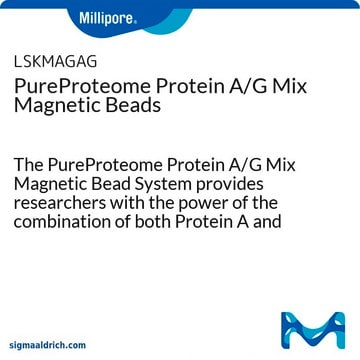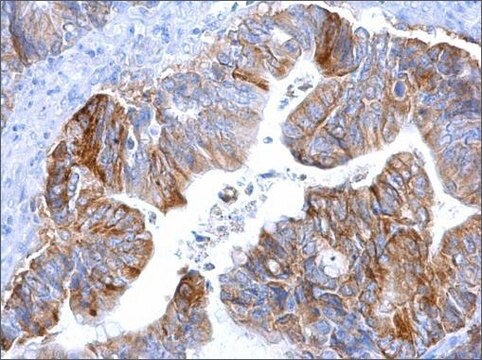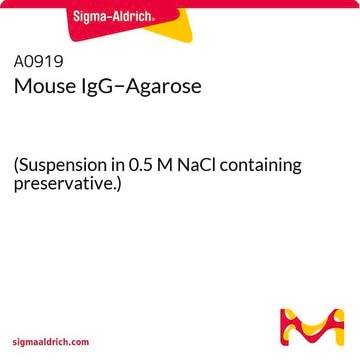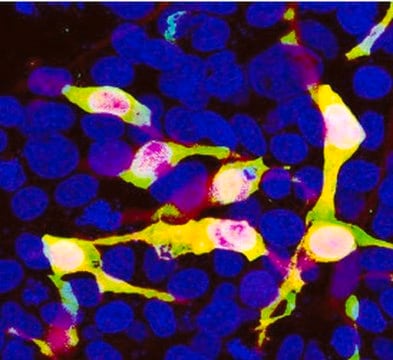SAB2702291
Monoclonal Anti-mCherry antibody produced in mouse
clone GT857, affinity isolated antibody
Szinonimák:
Anti Mcherry Antibody, Anti mCherry Antibody - Monoclonal Anti-mCherry antibody produced in mouse
About This Item
Javasolt termékek
biológiai forrás
mouse
Minőségi szint
konjugátum
unconjugated
antitest forma
affinity isolated antibody
antitest terméktípus
primary antibodies
klón
GT857, monoclonal
form
buffered aqueous solution
koncentráció
1mg/mL
technika/technikák
immunohistochemistry: suitable
western blot: 1:500-1:3,000
izotípus
IgG1
kiszállítva
wet ice
tárolási hőmérséklet
−20°C
célzott transzláció utáni módosítás
unmodified
Általános leírás
Immunogen
Alkalmazás
Biokémiai/fiziológiai hatások
Tulajdonságok és előnyök
Egyéb megjegyzések
Fizikai forma
Jogi nyilatkozat
Nem találja a megfelelő terméket?
Próbálja ki a Termékválasztó eszköz. eszközt
Tárolási osztály kódja
12 - Non Combustible Liquids
WGK
nwg
Lobbanási pont (F)
Not applicable
Lobbanási pont (C)
Not applicable
Analitikai tanúsítványok (COA)
Analitikai tanúsítványok (COA) keresése a termék sarzs-/tételszámának megadásával. A sarzs- és tételszámok a termék címkéjén találhatók, a „Lot” vagy „Batch” szavak után.
Már rendelkezik ezzel a termékkel?
Az Ön által nemrégiben megvásárolt termékekre vonatkozó dokumentumokat a Dokumentumtárban találja.
Tudóscsoportunk valamennyi kutatási területen rendelkezik tapasztalattal, beleértve az élettudományt, az anyagtudományt, a kémiai szintézist, a kromatográfiát, az analitikát és még sok más területet.
Lépjen kapcsolatba a szaktanácsadással








